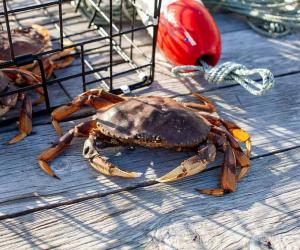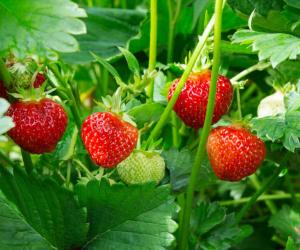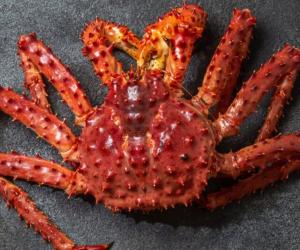10 Human Foods You Should Never Feed to Ferrets
Ferrets have a diet that requires them to eat 5 to 7% of their weight to maintain a strong, healthy, body. Additionally, their diet requires a balance of protein, and high-fat content to function properly. In this article, you will discover 10 human foods you should never feed to ferrets.
How Much Food Do I Feed My Ferret?
Deciding how much food your ferret will require for adequate health can be complicated. Factors that will determine how much food to feed your ferret include:
- Age
- Weight
- Physical activity.
- Reproductive health.
- Base health of your ferret.
Leaving food for access at their disposal is typically a recommended part of their diet. However, if they are gaining a lot of weight you may need to halt free-for-all access to food. Additionally, you should consult with your local exotic vet to determine what your ferret will need in nutrients.
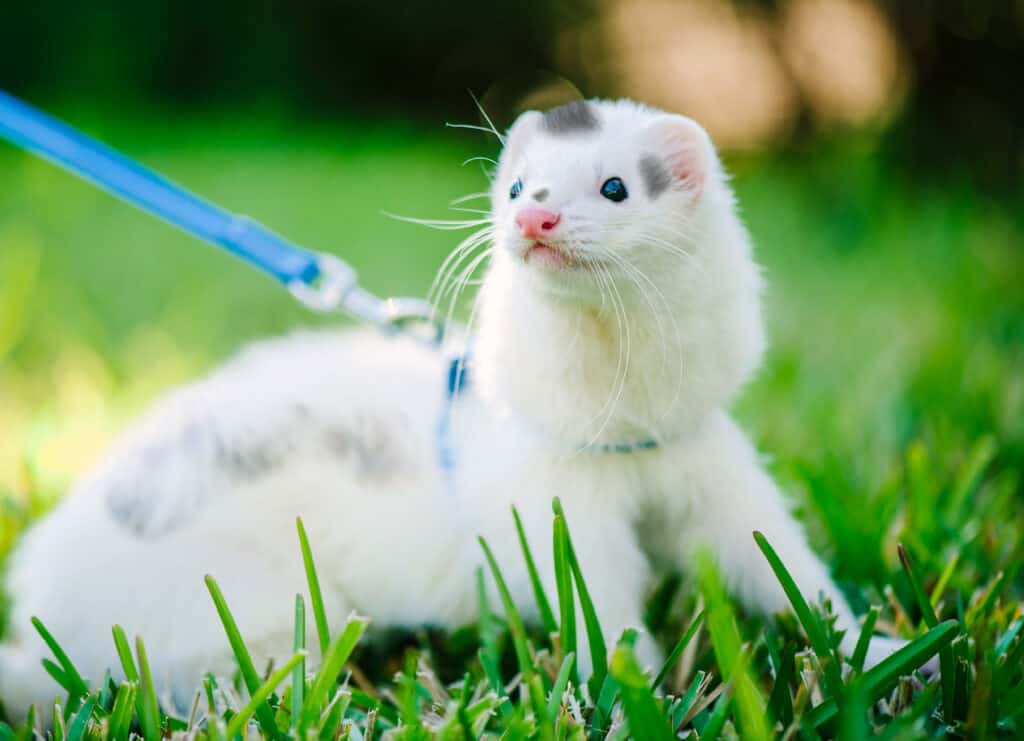
©Eric Isselee/Shutterstock.com
How Many Times a Day Should Your Ferret Eat?
Your ferret should consume food around 6-8 times per day. Additionally, they have a speedy metabolism and a digestive tract that absorbs food fast. Plus, leaving out a pellet that has 32 to 38% of protein included such as duck or chicken every day, is highly recommended.
Additionally, kitten kibble is highly recommended for ferrets to feed during the day. It is inexpensive and can give them the baseline of nutrients that they need. However, you will still need to add some pieces of poultry or mice to ensure they are getting the right amount of protein.

©Couperfield/Shutterstock.com
Can My Ferret Eat Dog Kibble?
In short, the answer is no. Dog food is not recommended to feed your ferrets due to the complex carbohydrates in the food. Therefore, a ferret is not equipped to handle these complex carbs due to their digestive tract.
Can I Cook Fresh Food For My Ferret?
Yes! In fact, freshly cooked meat is a great way to ensure that your ferret gets the appropriate amount of protein. In addition, you will want to make sure that you cook the meat at the right temperature to prevent your cat snake from gaining a disease.
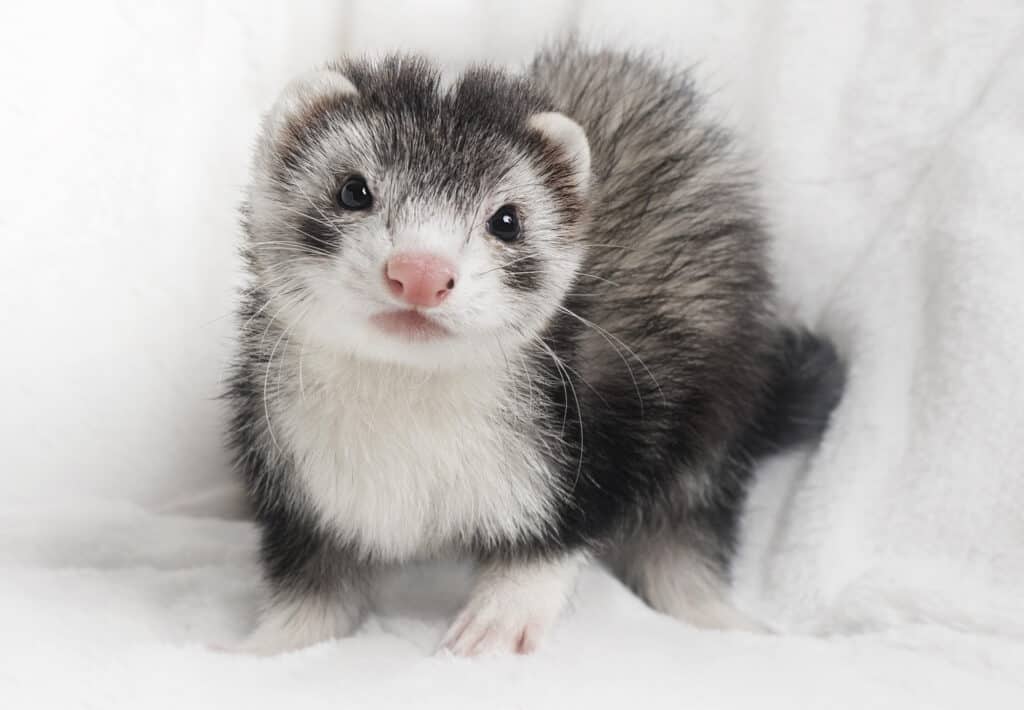
©Stephanie’screativeImages/Shutterstock.com
Are Eggs Okay to Feed Ferrets?
Eggs are safe to feed ferrets. However, they should be fed no more than a few times a week. Plus, you can feed your fur noodles raw eggs, or scrambled eggs without seasonings.
10 Human Foods to Avoid Feeding Your Ferret
Veggies
Vegetables may be beneficial to your well-being. However, it is not recommended to give to ferrets. Carrots are tough for their tummies to digest while avocado is poisonous to fuzzy noodles.
Fruit
Fruit is not a good food to feed to your ferret due to the sugar content. Additionally, it can put your ferret at risk of developing insulin which can act as a poison within your ferret’s body.
Chocolate
Not only does it contain sugar, but chocolate also has components that are toxic to fur snakes.
Dairy
Dairy products also have sugar in them. Not only is the sugar found in dairy a threat to your ferrets, but their tummies cannot break down most dairy products.
Snacks Such As Crackers, Cakes, and Cookies
Sugary snacks are not recommended for human consumption in large quantities. In addition, your ferret cannot break down the carbs or sugars. Plus, most treats have chocolate in them which also is not recommended for catsnakes.
Cooked Bones
Contrary to popular belief, cooked bones are not a good food to give your ferret. Tiny shards of bone can break off and become trapped in their teeth or gums. Plus, they can cause major damage to their stomach.
Dog and Cat Food
As mentioned in the paragraphs above, dog and cat food is not recommended for sensitive ferret tummies. Dog and cat food do not contain the right amount of protein, either.
Xylitol
Xylitol is a popular sugar additive in sugar-free, or low-sugar snacks. However, it is a toxic chemical that can cause fatality in ferrets if consumed.
Plants
Most houseplants are good for humans. Although, they are not food for ferrets. In addition, you should never let curious cat snakes play in areas where plants can be accessed easily by them.
Bread
Breads contain carbs that are not easily digested by your ferret’s tummy.
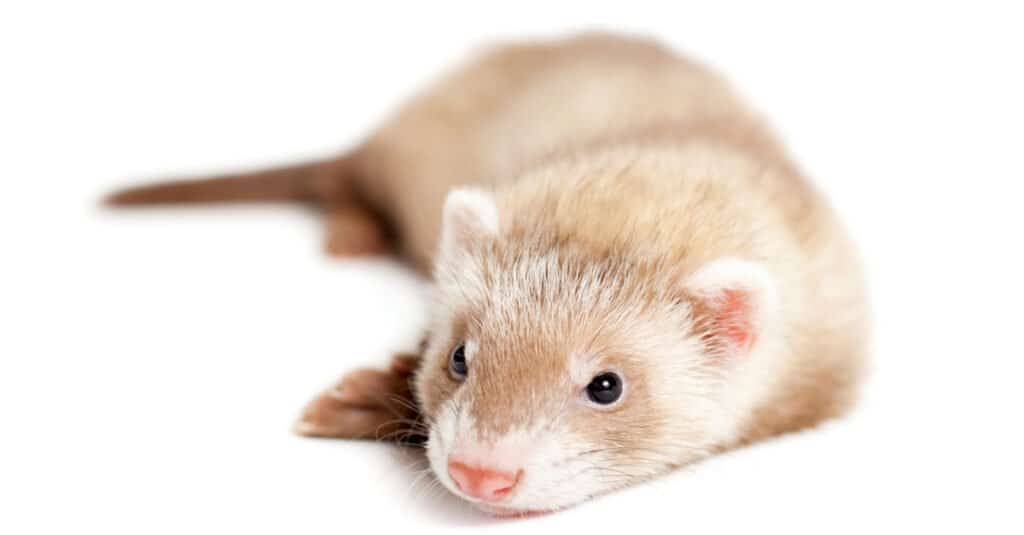
©Denis Kukareko/Shutterstock.com
What is Ferret Insulinoma?
Ferret insulinoma is a disease that causes tumors to develop in the pancreas. It releases toxic amounts of insulin in your ferret’s body. When these insulin levels increase it causes their blood sugar to crash. Blood sugar is required for the brain and muscles to work appropriately.
Ferret insulinoma is commonly found in older ferrets. However, consumption of sugar and carbs can also increase the risk of developing insulinoma. Additionally, improper nutrition can increase the risk as well.
Insulinoma Signs in Ferrets
- Pawing at the mouth.
- Excessively drooling.
- Seizures.
- Weakness in the back legs.
- Losing weight unexpectedly.
- Times of lethargy then periods of normal behavior. Additionally, this is often why insulinoma is missed in ferrets.
Diagnosis
Ferret insulinoma is diagnosed by blood tests, ultrasound, and other laboratory tests that check blood glucose levels, and for scoping out any tumors.
Treatment
Unfortunately, there is no treatment for ferret insulinoma. However, there are treatments designed to slow down the progression of tumors and insulinoma from spreading.
Prednisone Injections
One treatment that is an option is prednisone treatment. These steroidal treatments will improve blood glucose levels. In addition, prednisone treatments will also reduce the speed of the tumor growth. Prednisone treatments can donate another 6 months to 18 months of life for your ferrets.
Surgery
Another option to slow the insulinoma down is to have surgery done to remove tumors. However, it is important to remember that even successful tumor surgeries may not fully remove the cancer cells. Surgery also helps to remove the symptoms associated with insulinoma. Typically, surgery can provide another 1 to 3 years of life for your ferret.
Chemotherapy
In recent years, the option of chemo for ferrets has been on the rise. Additionally, chemo treatments are given every 3 weeks via IV insertion. Chemotherapy has not been able to measure how much longer life it can provide. However, it has been proven that many patients greatly improve their well-being after chemotherapy.
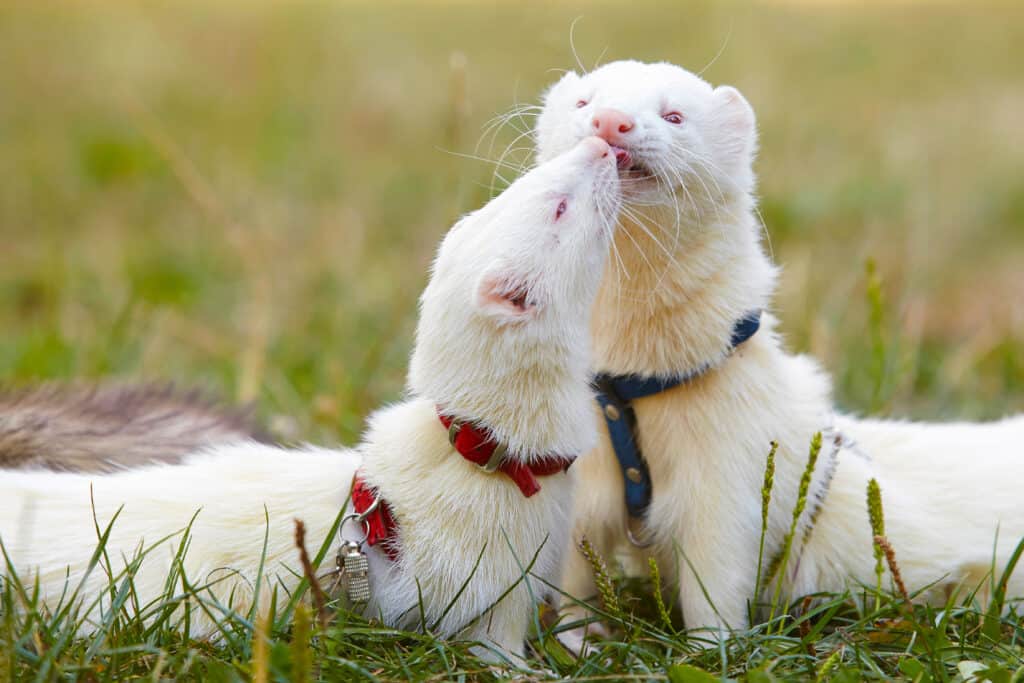
©Couperfield/Shutterstock.com
Remember to feed your ferret a high protein diet. Additionally, avoid these 10 human foods you should never feed to ferrets.
10 Human Foods You Should Never Feed to Ferrets Table
| Food | Reason Not Why You Should Not Feed to Ferrets |
| Fruit | High in sugars which can increase insulinoma risk. In addition, their bodies cannot breakdown the sugar well. |
| Chocolate | Extremely toxic and fatal to ferrets. |
| Veggies | Most veggies are hard to breakdown. In addition, some are poisonous to ferrets. |
| Dairy | Dairy cannot be digested by ferret tummies. In addition the sugar content is not safe for ferrets either. |
| Dog & Cat Food | Dog and cat food is not designed for the complex G.I tract of ferrets. Additionally, they lack proper amounts of protein that are essential to ferret health. |
| Xylitol | Poisonous to ferrets. |
| Cooked Bones | Bones can splinter into the ferret’s gums and teeth. Plus, they cannot digest the material of the bones very well. |
| Bread | The carbs in bread are too tough for ferret tummies to digest. |
| Plants | Many houseplants are toxic to ferrets. Additionally, you should always monitor your ferrets if they are playing near plants to ensure they do not taste any. |
